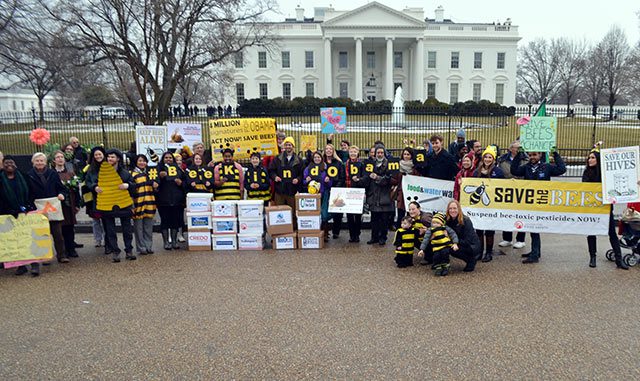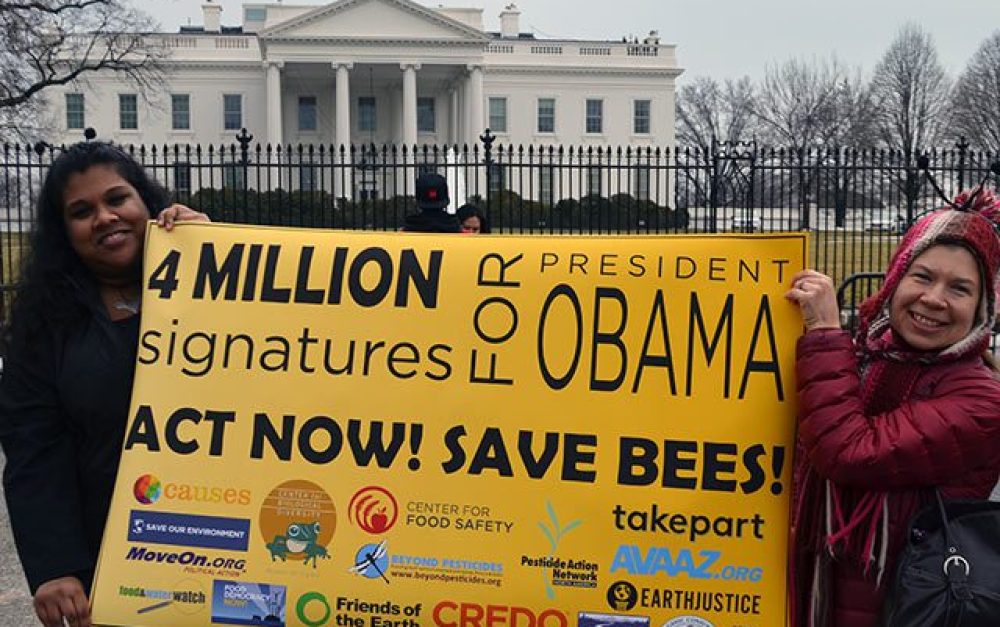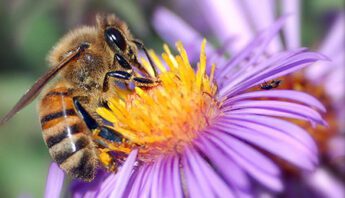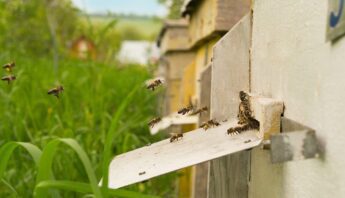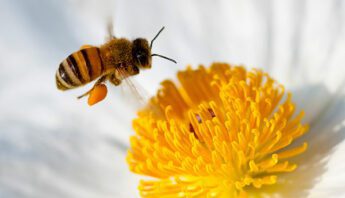It’s been a big week for honey bees! Yesterday, “bee kind Obama” and “save our bees” chants echoed at a rally on Pennsylvania Avenue, as our national coalition delivered more than four million (!!) signatures to White House. The petition calls on President Obama’s pollinator task force to step up and take action on bee-harming pesticides. And soon.
The rally comes on the heels of Monday’s delivery of a letter to the White House officials signed by more than 125 diverse groups calling for stronger protections for bees and other pollinators. Signers included conservation, beekeeping, food safety, religious and farming advocacy organizations.
Recommendations from the White House task force are expected any day. President Obama set the multi-agency initiative in motion back in June, with a mandate to issue a report by December. But, as the weeks drag on, urgently needed action to protect pollinators continues to be delayed. Commercial beekeepers continue to report significant honey bee losses — and in many cases — their livelihoods are at risk.
Feds fall behind on neonics
Unfortunately for bees, the task force doesn’t seem ready to tackle the driving factor that has been linked time and again to bee declines — neonicotinoid pesticides, or ‘neonics.’ Neonics are now the most widely used class of insecticides in the world. Though the final recommendations have not yet been released, signals are that EPA is pressing for “best practices” and unenforceable state plans that will do little to help bees and beekeepers on the ground.
Meanwhile the European Union passed a two-year moratorium on three of the most commonly used neonics back in 2013.
It’s time for the U.S. to do some catching up. PAN’s petition to the President demands decisive action on neonics. While these systemic insecticides can indeed kill bees outright, it turns out low-level, long-term exposure compromises bees’ immune systems. It also interferes with their ability to reproduce, forage for food, navigate and communicate.
Supporters of yesterday’s pressure on the White House included Representative John Conyers (D-MI), who re-introduced the Saving America’s Pollinators Act earlier in the morning. The bill would suspend the use of four of the most toxic neonicotinoids until EPA conducts a full review of their safety. Representative Conyers underscored the urgency of the problem in a recent statement:
“The EPA plans to wait until 2018 before reviewing the registration of neonicotinoids. But America’s bees cannot wait three more years. Neither can the thousands of farmers that rely on pollinators.”
Cities step up
I’m pleased to report that grassroots momentum to protect bees continues to build in cities across the country. Sacramento, California is the latest municipality to become an official “honey bee haven,” joining the ranks of Eugene (OR), Spokane (WA) and many other cities that are standing up for bees. By becoming a haven, the City of Sacramento pledged that bees will have a safe refuge — including protection from bee-harming pesticides.
Given continued federal inaction, local progress in communities and states becomes all the more important. The fact is, bees need all the help they can get.
PAN and our partners plan to keep the pressure on — including collecting and delivering more signatures — until the White House takes meaningful steps to protect bees, beekeepers and our food system.
